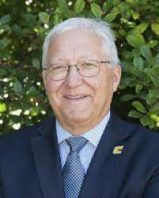
“Statewide Automotive Innovation Roundtable” focuses on EVs and Tennessee
 By Kailyn Lamb, Marketing Content Writer and Editor, PYA
By Kailyn Lamb, Marketing Content Writer and Editor, PYA
Last week, the Tennessee Advanced Energy Business Council (TAEBC) hosted the virtual “Statewide Automotive Innovation Roundtable,” which brought together researchers and other area experts to discuss electric vehicles (EVs).
Cortney Piper, Executive Director of TAEBC, moderated the discussion, which revolved around Tennessee Governor Bill Lee’s mission to make Tennessee the #1 state in the country for the EV supply chain.

The roundtable included: (1) Ryan Stanton, Senior Project Manager of EV Evolution at the Tennessee Valley Authority (TVA); (2) Alexa Voytek, Energy Programs Administrator of the Tennessee Department of Environment and Conservation (TDEC); (3) Doug Adams, Daniel F. Flowers Professor and Associate Provost of the Office of Research at Vanderbilt University; (4) Deborah Crawford, Vice Chancellor for Research, Innovation, and Economic Development at the University of Tennessee, Knoxville (UTK); (5) Sabya Mishra, Faudree Associate Professor and Director of the Center for Transportation Innovations in Education and Research (C-TIER) at the University of Memphis; (6) Reinhold Mann, Deputy Vice Chancellor for Research at UT Chattanooga (UTC); and (7) Rich Davies, Sustainable Transportation Program Director and Energy Efficiency and Renewable Energy (EERE) Coordinator at Oak Ridge National Laboratory (ORNL).

ach member of the roundtable was given a few minutes to speak about recent innovations or important projects their organizations are working on before a Q&A session at the end of the virtual program. Many of them focused on the need for collaboration between organizations. Stanton in particular called the mission of wider EV adoption a “team sport,” adding that no one organization can do it alone.

The power grid and the need for a strong workforce related to EVs were also common themes. Members of the roundtable also frequently addressed how rural communities could benefit from expanded charging, which is currently an adoption barrier. “Ensuring power is available when and where it’s needed” is crucial in helping those communities benefit as much as larger cities, Adams said.
Stanton started the roundtable by talking about TVA’s work in recruiting Original Equipment Manufacturers (OEMs) and component manufacturers to Tennessee. He also spoke on partnerships with state agencies to further develop a fast-charging network in the region and an EV roadmap. Both these things would make it easier for more people to use EVs, he added.
Voytek spoke next, also speaking about the charging network. The Fast Charge TN Network aims to have fast chargers every 50 miles on primary and secondary roadways. “We want to be the EV epicenter of the United States,” she said of expanding that network.
TDEC and the Tennessee Department of Transportation (TDOT) received $88 million in funding from the Bipartisan Infrastructure Law’s National Electric Vehicle Infrastructure program, Voytek said. The funding will be spread over five years.
Adams focused his talk on research happening at Vanderbilt, which is focused more on use-inspired innovations or, as he described it, “looking at the biggest needs and trying to find the biggest challenges.” Congestion and helping vehicles drive more efficiently were some of the top issues. Adams said that even a small number of automated vehicles on the road can increase everyone’s efficiency.

Crawford spoke briefly on safety and security, making sure EVs are cyber secure. She also announced a new statewide “Mobility Innovation Consortium,” which aims to strengthen Tennessee’s mobility innovation ecosystem through partnership-based investments in R&D and workforce development, and the creation, recruitment and support of high-growth, trade sector companies. Crawford added that many of the organizations on the roundtable were part of the new consortium.

Mishra said his work at C-TIER was focused on using data collection to identify infrastructure needs such as where charging networks were most needed. He also spoke about the new Ford plant being built near Memphis and working with the city’s transit authority on figuring out power needs for its bus system.

Mann talked about the award-winning “Smart City” system the City of Chattanooga built in partnership with EPB (read our teknovation.biz coverage on it here). The current system runs along the MLK Corridor. Mann said there are plans for expanding the program to cover 2.5 miles on the highway as well as additional intersections in the downtown area and more underserved communities.

Davies was the last to speak. He covered work at ORNL to make electric equipment less bulky and heavy, which can also make EVs cheaper. The lab has also been doing more research on recycling batteries. Outside of cars, Davies said ORNL is looking at electric needs of ocean-going vehicles and train programs.
Piper kicked off the Q&A session by asking about media outlets naming the Tennessee region “the next Detroit” due to its work in EVs, and how to carry that label into the future.
Davies said Detroit is still the automotive hub because so many OEMs are there, and that Tennessee needs to work to bring more here. Stanton agreed, adding that having the right workforce talent is a component of that. “If experienced folks are here, the companies will follow,” he said.
Mishra also added the state could utilize tax incentives to draw companies here.
The next question that was asked is a common one when talking about more widespread EV adoption: Will the power grid be able to support all these new vehicles?
The short answer from Stanton is, yes. He added there was an increase of power by six times between WWII and the ‘70s.
“To put it in perspective, there are approximately 27,000 EVs on TVA’s power system currently,” he said. “Even if we were to increase that amount to 200,000 EVs by 2028 – our goal set in TVA’s Drive Electric TN Roadmap – that would still only make up about a half a percent of TVA’s load today.”
You can find a full recording of the roundtable here.
Like what you've read?
Forward to a friend!

